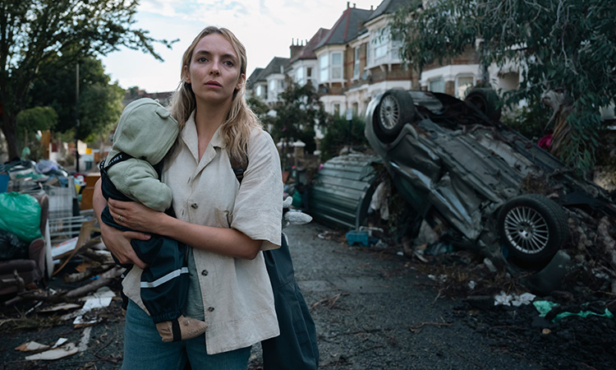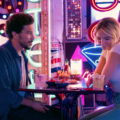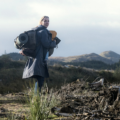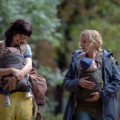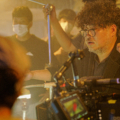Directed by Mahalia Belo and starring Jodie Comer, The End We Start From sees an environmental crisis leave London submerged by flood waters and a young family torn apart in the chaos. As a woman and her newborn try and find their way home, the profound novelty of motherhood is brought into sharp focus in this intimate and poetic portrayal of family survival.
We spoke to the movie’s star and executive producer Jodie Comer about working alongside Katherine Waterston and Joel Fry, getting COVID while shooting the movie and giving a truthful representation of what motherhood is like.
You’re not just an actor in The End We Start From. What was the appeal of executive producing as well as performing in the movie?
I came on to this project as an actor and as an executive producer. The prospect of being able to be a part of the early creative conversations was really important and really exciting for me. The production company and [director] Mahalia [Belo] were so open to that and celebratory of that. It’s been a really invaluable experience.
In the book, the characters do not have conventional names. Many are just referred to by one letter, such as O and R, while your character is simply called Woman. What does that add to the story?
What I loved about none of the characters having a name was the way they could be anyone. You know, they could be any one of us. I really liked how that pulled the audience [into the story] in a different way. I’d be curious, actually, if that’s something that audiences really notice. It’s not until after the fact that people go, “Oh, wait… What were they called?”
What was it like to work with Katherine Waterston, who plays O?
I was so struck by Katherine’s curiosity. She was always asking questions and always wanted to know the answers to things. I found that incredibly inspiring. It’s amazing when you work with an actor and you know you’re both on the same page, so you can both surrender and know that the other person is right there with you. I definitely had that experience on this film, especially with the baby – but also with everyone else.
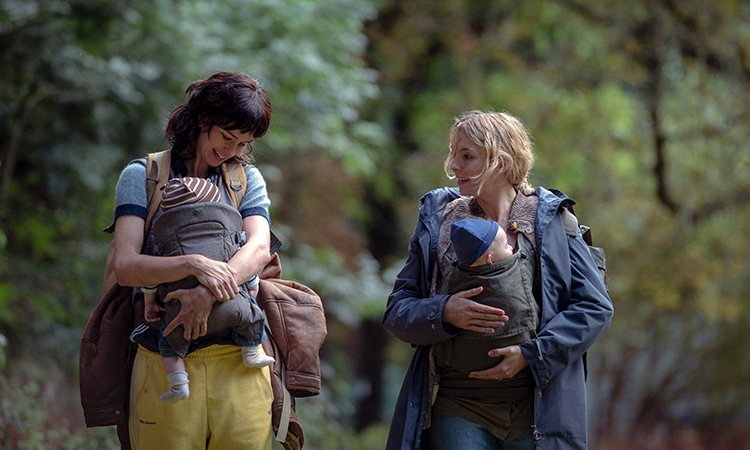
You first met your co-star Joel Fry in a chemistry read. Can you talk about your relationship with Joel and his character, R?
It was brilliant. I was doing Prima Facie in London at the time and they were like, “Do you have an afternoon free where you could come and read with a couple of potential Rs?” I was, like, “Absolutely.” I remember that what really struck me about Joel was the way he came in and he didn’t really talk all that much before we did the scenes. And even when we did three or four scenes, he hardly looked at me in some of them – but we still had this chemistry. With Joel, it felt like I’d known him for years. You know, the love between the characters felt so lived in. It was so refreshing and so surprising. He’s so intelligent and so witty, but he also has a real vulnerability – and he can really access that part of him.
I remember he left the room and I was, like, “There he is.” I was so taken aback by the experience and I thought his choices were really interesting. And, truth be told, it just felt like we knew each other. It’s funny because I think we’re so different in many ways, but sometimes you just can’t explain that thing that works – and it was felt by everyone. We were so lucky to have him.
How much of a challenge was it to play a mother in an apocalyptic situation like this?
For me, the biggest thing about playing Woman was [the fact that] I don’t have children and this is very much a film about motherhood. I really wanted to give a truthful representation of what that experience is like, or can be like. What was interesting for me was she’s much more introverted than I am, so I felt like there was a lot of myself that I had to hold back.
It’s actually Katherine Waterston’s character, who we call O, who helps her find her sense of self and almost gets her to come out of her shell a little bit more. For me, I think the biggest thing was making sure that the relationship with the baby felt truthful and complex and natural. I wanted to show that journey from having a baby and having no idea of what to do or how to be. I wanted you to see the many different stages of her finding her feet within that.
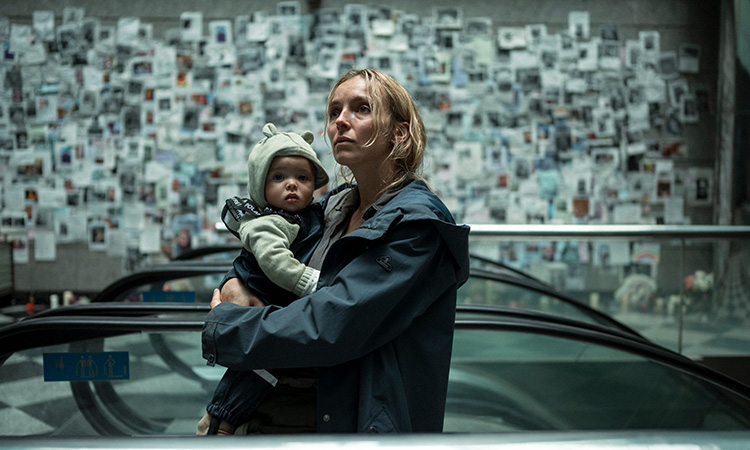
What other challenges did you face?
I got COVID during the shoot and I’m in every scene, so we had to step down, which could not have been worse from a production standpoint. There were quite a few challenges, but you just have to be passionate because the odds can be so stacked against you – but I feel like what it creates is a real camaraderie and a real resilience on a set between everyone.
What did you learn from making the movie?
I think what I really learned and what I found really fascinating was being a part of the post process. Also, I learned to look after your crews, because when those shoots are short and time is tight and you’re asking a lot of people – whether that be overtime or filming in the elements and people are exhausted – just having that real clear communication with your crew and making sure that they’re happy and they’re well and they’re being listened to is really integral.
How long was the film shoot?
Before we started shooting, the shoot got cut by a few weeks but the script hadn’t been cut. I think the shoot was about six weeks in the end, maybe seven. I can’t remember exactly. We shot most of that on location in London and then we had a week on the west coast of Scotland, which was so stunning and gives the film a breath of fresh air. It was short. It was tough. And then, with COVID, it was a lot – but I feel incredibly proud of the film that we have at the end of that.
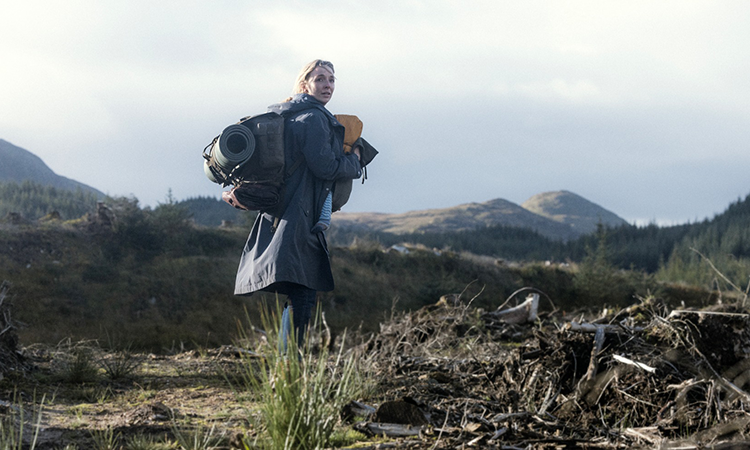
What was it like to work with Mahalia Belo as a director?
What I’ve learned from May [Mahalia] is that your sensitivity is your super power. I knew how naturalistic she wanted to go with this – and that’s what really enticed me actually. She really cares. There were so many scenes where, again, for lack of time, she’s in the room with us with a tiny hand-held screen and she was always so present.
She really helped me with the dialogue that the character has with the baby, because I’ve not been around many babies. All my young cousins have grown up now. I always remember how Mahalia helped me with all these conversational moments that the character has with the baby. Whether she’s apologising or speaking about the future, the baby almost becomes a friend. She’s having mundane, everyday conversations with him because she doesn’t have anyone else – but I also see it with people I know. When I see friends speaking to their children, they speak to them like adults. I don’t know how to explain it, but I feel like there’s a nuance there; that unless you’ve experienced motherhood, it’s not your instinct.
I also think we championed each other. Mahalia’s vision was the reason why I wanted to be a part of this film. And that was why it was so important to me in the post-production that she was being supported and given the given a space to do that. It’s been a great experience.
The End We Start From is in UK cinemas now. Read our review here.
